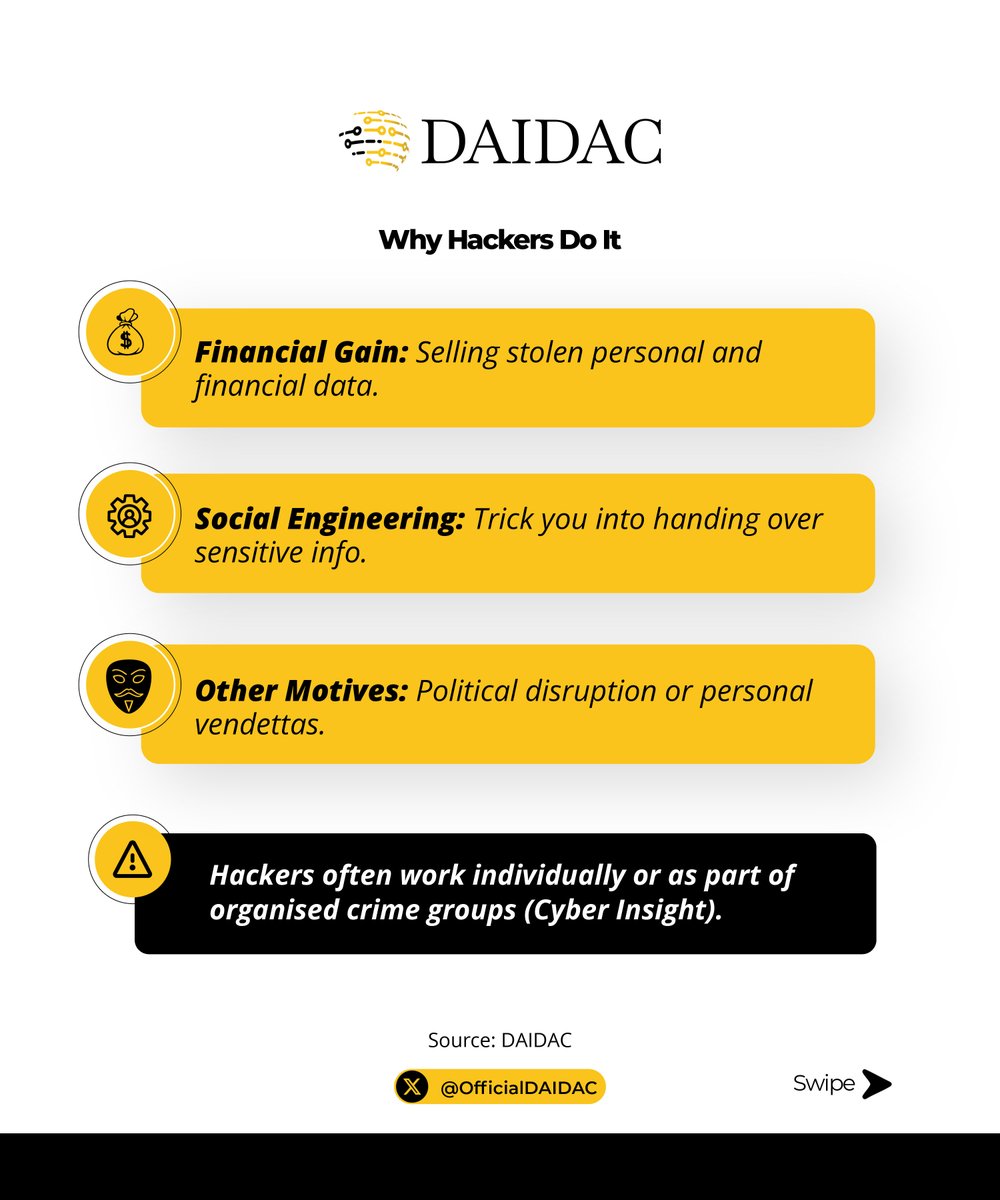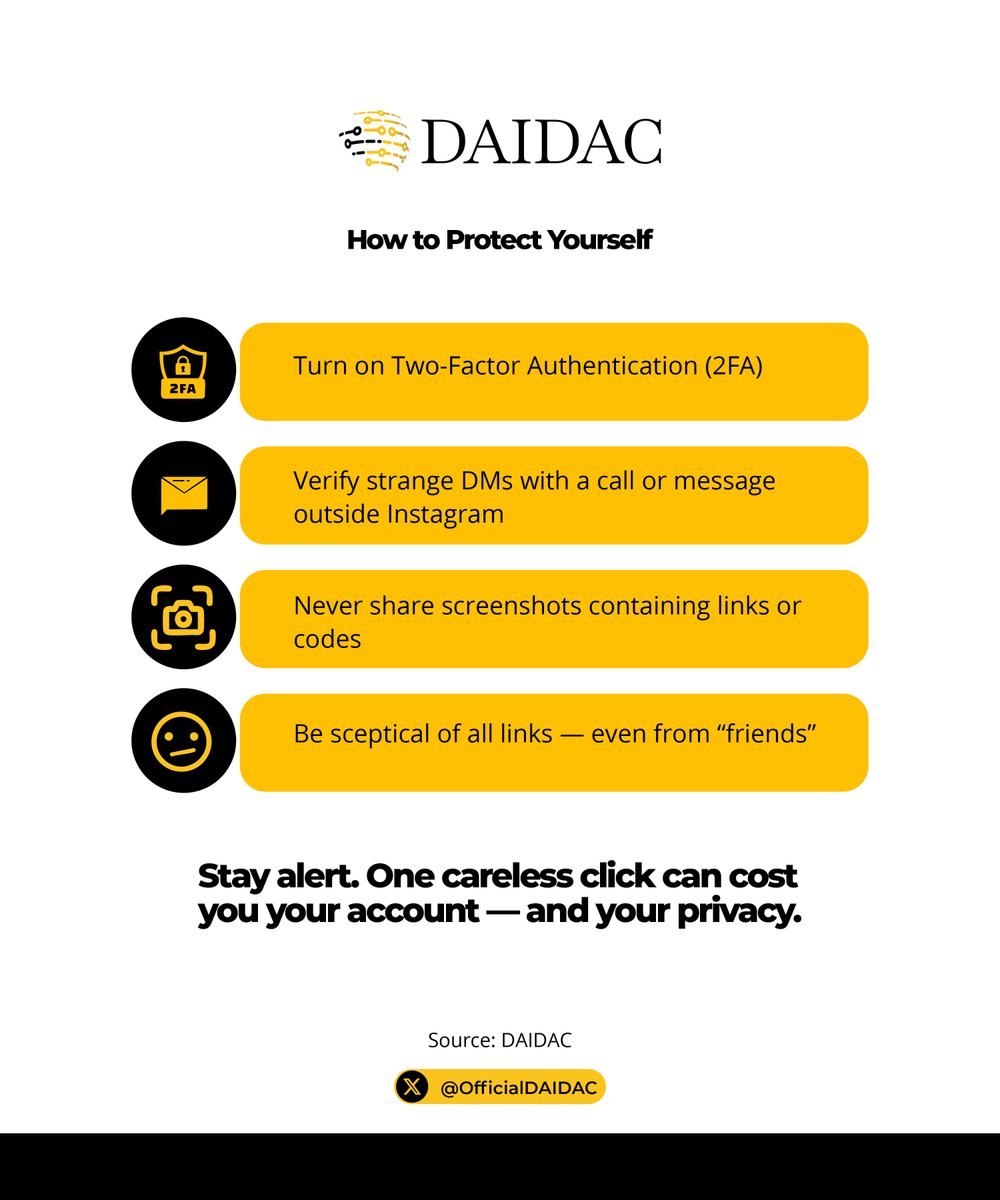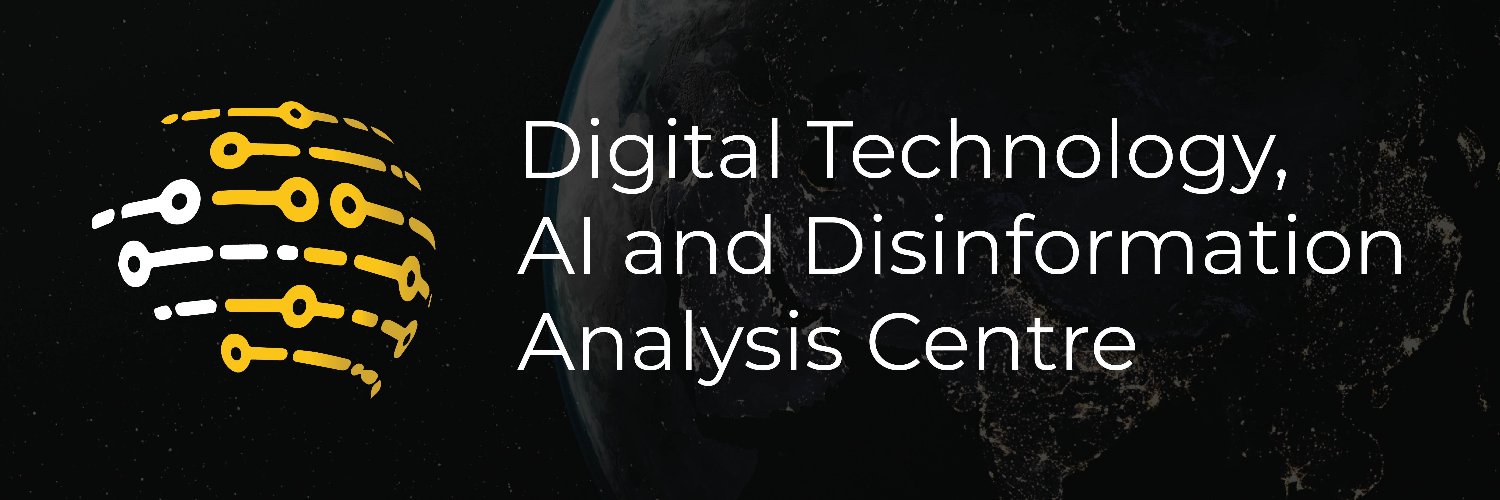
Digital Tech, AI, & Disinformation Analysis Centre
@OfficialDAIDAC
DAIDAC is @CJIDAfrica’s digital research hub. We are at the forefront of navigating the complex interplay between technology, AI and information systems.
Parody accounts on X are no longer just jokes; from impersonating celebrities to misleading the public, they’re shaping false narratives despite platform policies. We explored how these accounts operate and why X is struggling to stop them. Learn more: bit.ly/4ks1Q91




Ready to boost your #OSINT and digital investigation skills?📌📌 DAIDAC has launched a dedicated resource page filled with curated tools, guides, and insights for your verification and digital investigation needs, all in one place! Get started here:👉 bit.ly/4o1fuTG

Fake jobs, crypto scams, and harmful bots – spam messages on X (Twitter) are becoming harder to ignore. With over 600 million users, experts warn it's time to fight back. Follow the link to learn how to spot and stop them: bit.ly/4klWsUX #StaySafeOnline



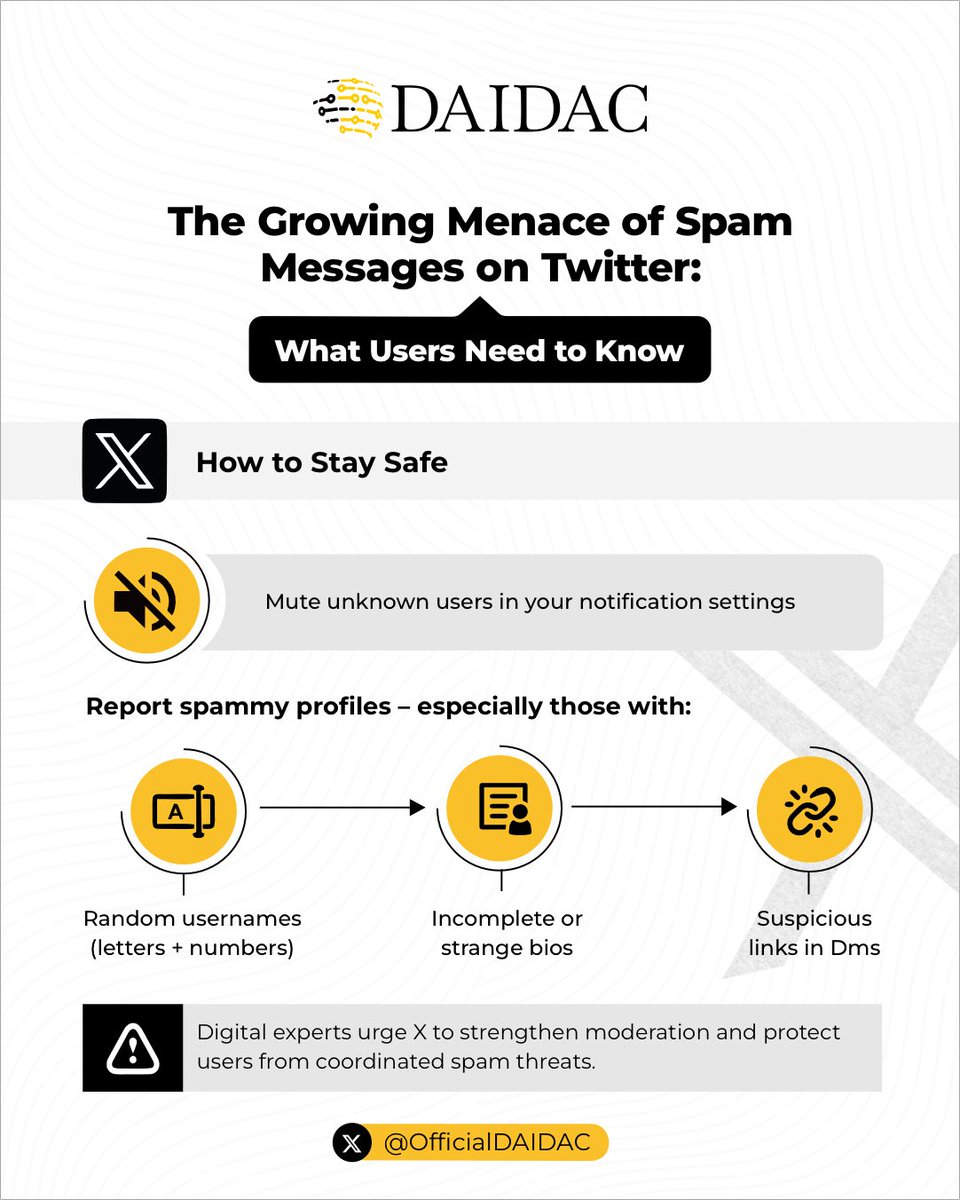
Misinformation is not just a social media problem; it’s a public health crisis. In Nigeria, myths about vaccines and diseases have cost lives. It's time we fight back with truth, education, and collective action. Learn more here: bit.ly/44Gm6Pw




Digital platforms have changed how we communicate, but they’ve also transformed how lies spread. With 241M new users in 2024 alone, the stakes are higher than ever. Here's how tech, misinformation, and profit motives intersect, and matter. Read more: bit.ly/40neC1m




AI-generated investment scams are on the rise in Nigeria. Platforms like Pocket Option and Quotex use deepfakes across social media to lure users into investing in schemes that often lead to significant losses. Learn more here:👉 bit.ly/4eiHX2N #VerifyBeforeYouInvest
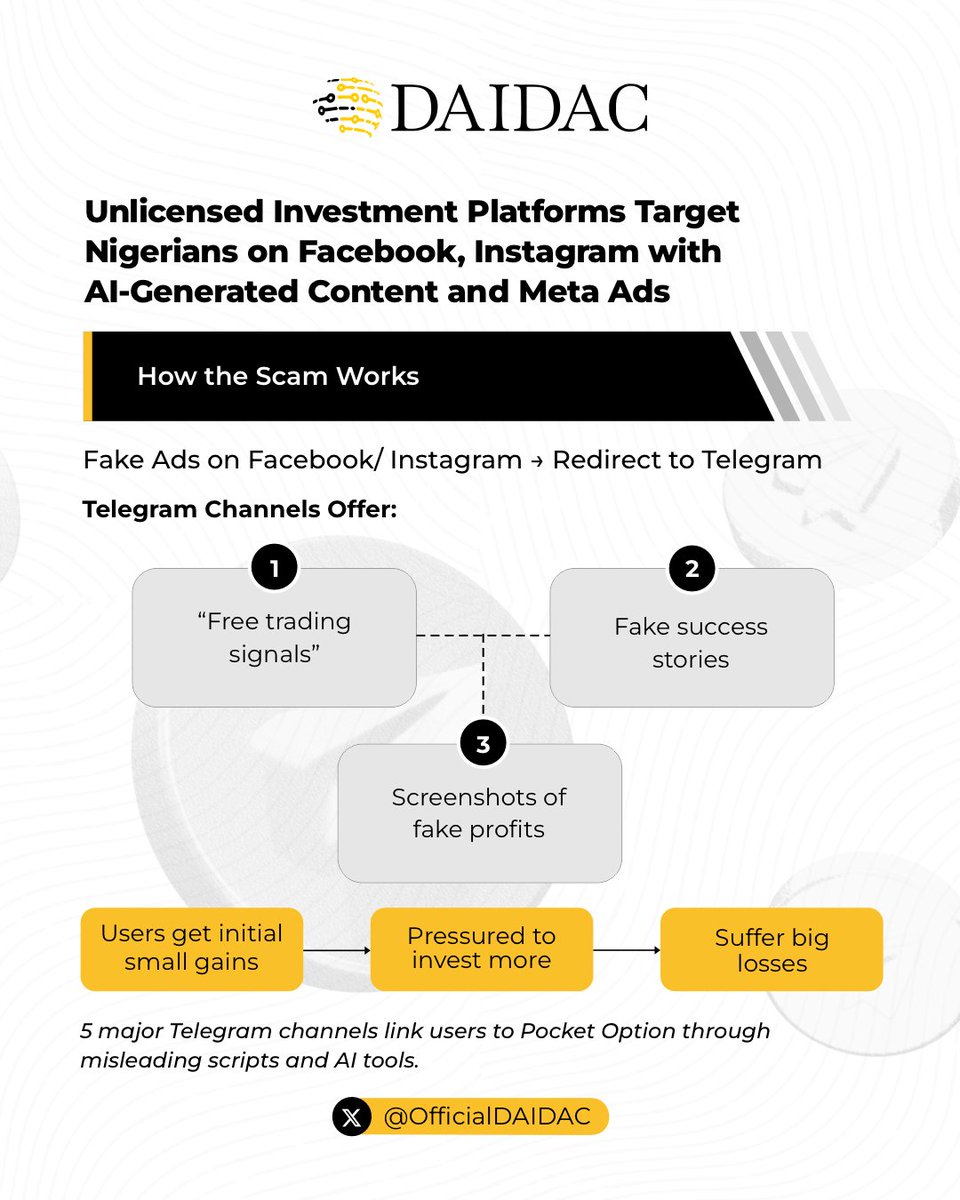



From MMM to CBEX, scams are evolving, but so should our defences. 600,000 Nigerians lost $800 million in a single scam. Here's how these schemes work, and how we can stop falling for them. Swipe through and learn more via the link: bit.ly/43W0n64📌 #FinancialLiteracy


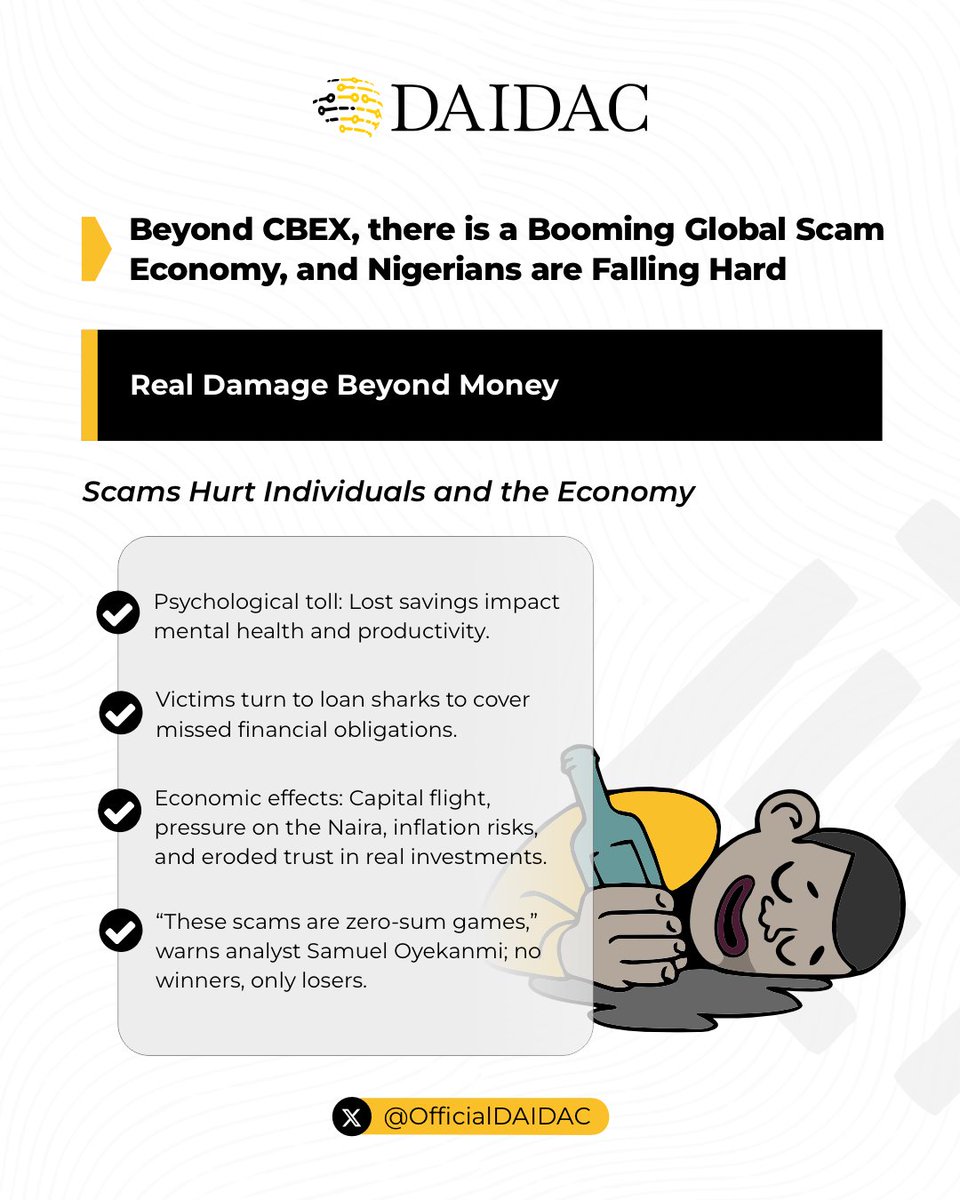

The battle between user privacy and platform accountability is heating up, from encrypted messaging to deadly algorithms. Telegram’s crackdown, Meta’s lawsuits, and Africa’s evolving laws tell us one thing: Learn more here:👉 bit.ly/40eYi2H




Between May 20 and 22, millions believed claims spread by a single disinformation actor about a coup in Côte d’Ivoire and echoed by regional influencers and blogs. Is this claim valid? Learn more via the link: bit.ly/40dxekn📌 #DigitalLiteracy




Fraudulent job offers are rising, especially those impersonating reputable organisations. These scams often use real training platforms, official-looking documents, and emotionally persuasive tactics to exploit trust and ambition. Learn how here:➡️ bit.ly/4jOVXTh




Information disorder isn’t just a media challenge. It also negatively impacts markets in the information ecosystem. Can insights from information economics, like signalling and screening, help fix it? Read more to find out: bit.ly/4iEYxLH. #InformationDisorder




African multimedia reporting is undergoing a significant transformation. From traditional newsrooms to mobile-first journalism, platforms across West Africa and the Sahel are adopting diverse formats to reach and engage digital-native audiences. See how: bit.ly/4mEz0Vk




From 3M-follower TikTok pages to AI-edited hero reels, authoritarian propaganda is going viral in Nigeria. 50.8% of youth now see military rule as “more decisive.” Democracy is losing the digital war for hearts & minds. See how here: bit.ly/4kzfXKd #AIandPolitics




From Hamster Kombat hype to CBEX collapse, Nigeria’s digital space keeps recycling old scams in new skins. With over ₦4.8 trillion lost since the collapse of MMM in 2016, it's clear that the promises of quick riches come at a high price. Learn more here: bit.ly/3ROf1p9




With about 5.56 billion users, the internet isn't just a tech tool. It’s a global space shaped by power & politics. As AI and new tech emerge and impact our digital lives, one question remains: Who regulates what we see and share online? Learn more here: bit.ly/3Z6xmS6


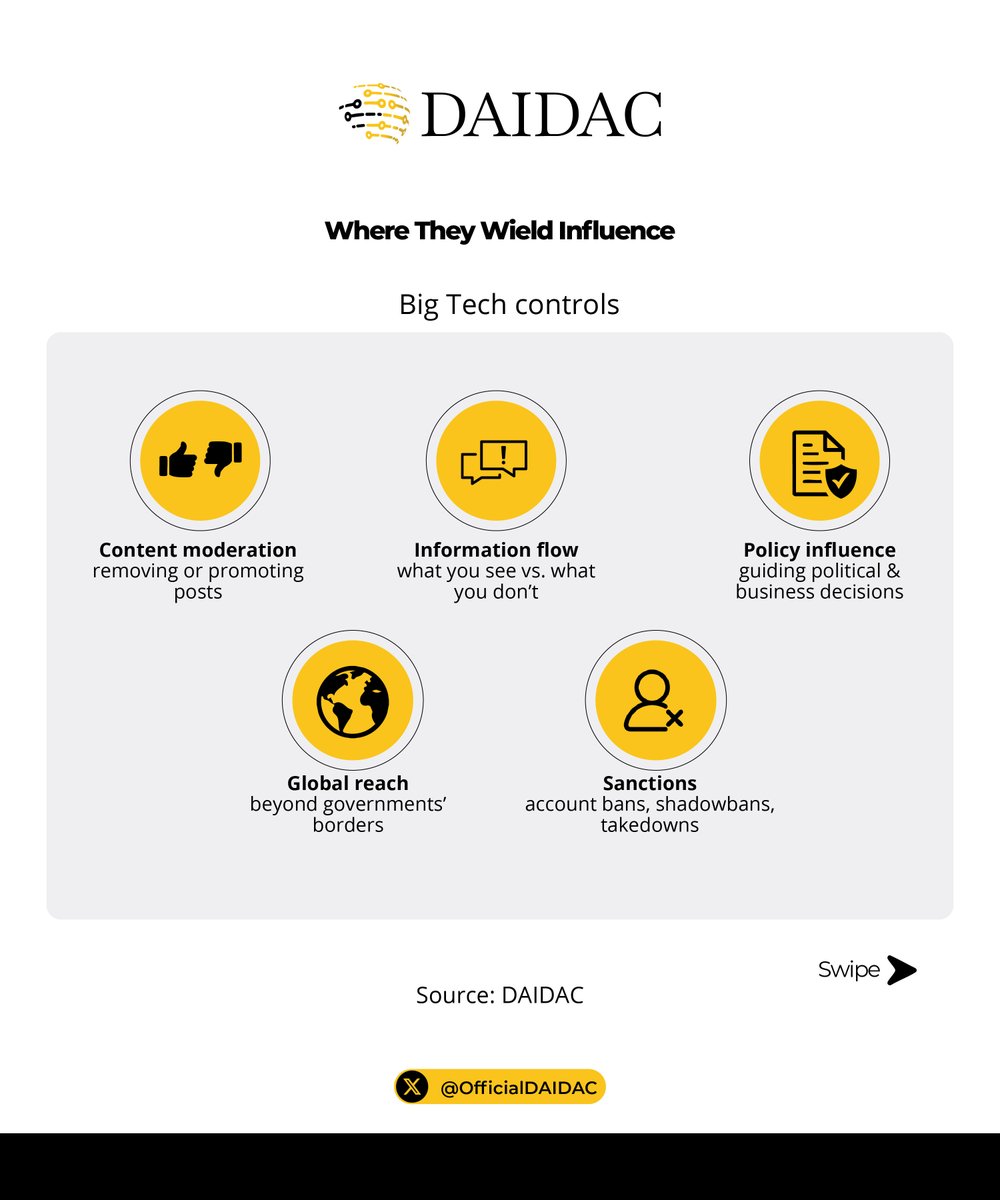

A viral post claimed that only two traditional rulers met Tinubu ahead of #EndBadGovernance protests. @DubawaFacts investigation shows otherwise, revealing a troubling trend of X accounts fueling disinformation against Nigeria’s Igbo tribe. Learn more: bit.ly/4jInyWI


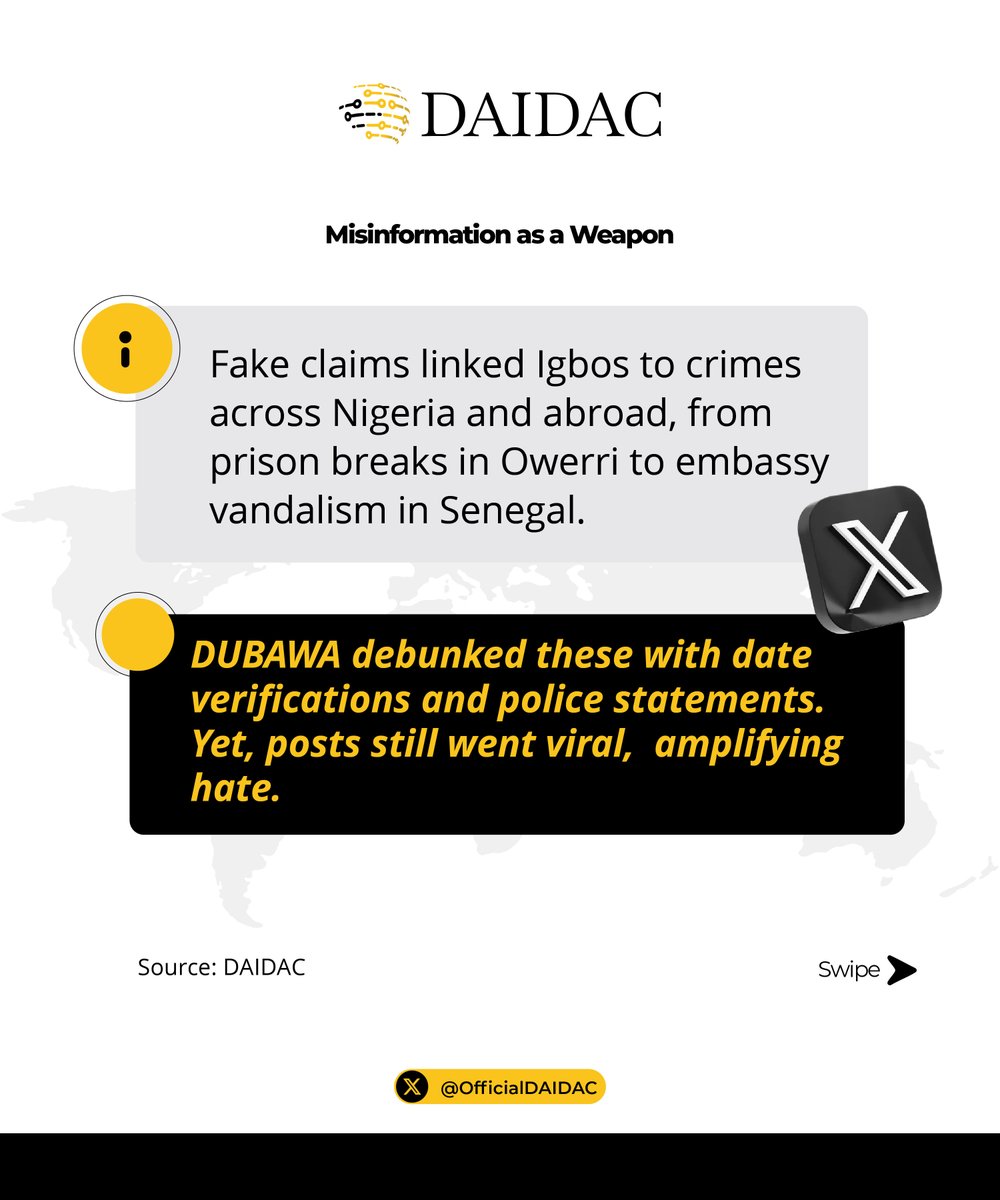

A survey of 755 people showed that 38% of Kenyans, 28% of Nigerians, and 35% of South African media consumers are fairly exposed to “fake news” regularly. This shows the level at which people are exposed to misinformation daily. Learn more here: bit.ly/3RMloJw


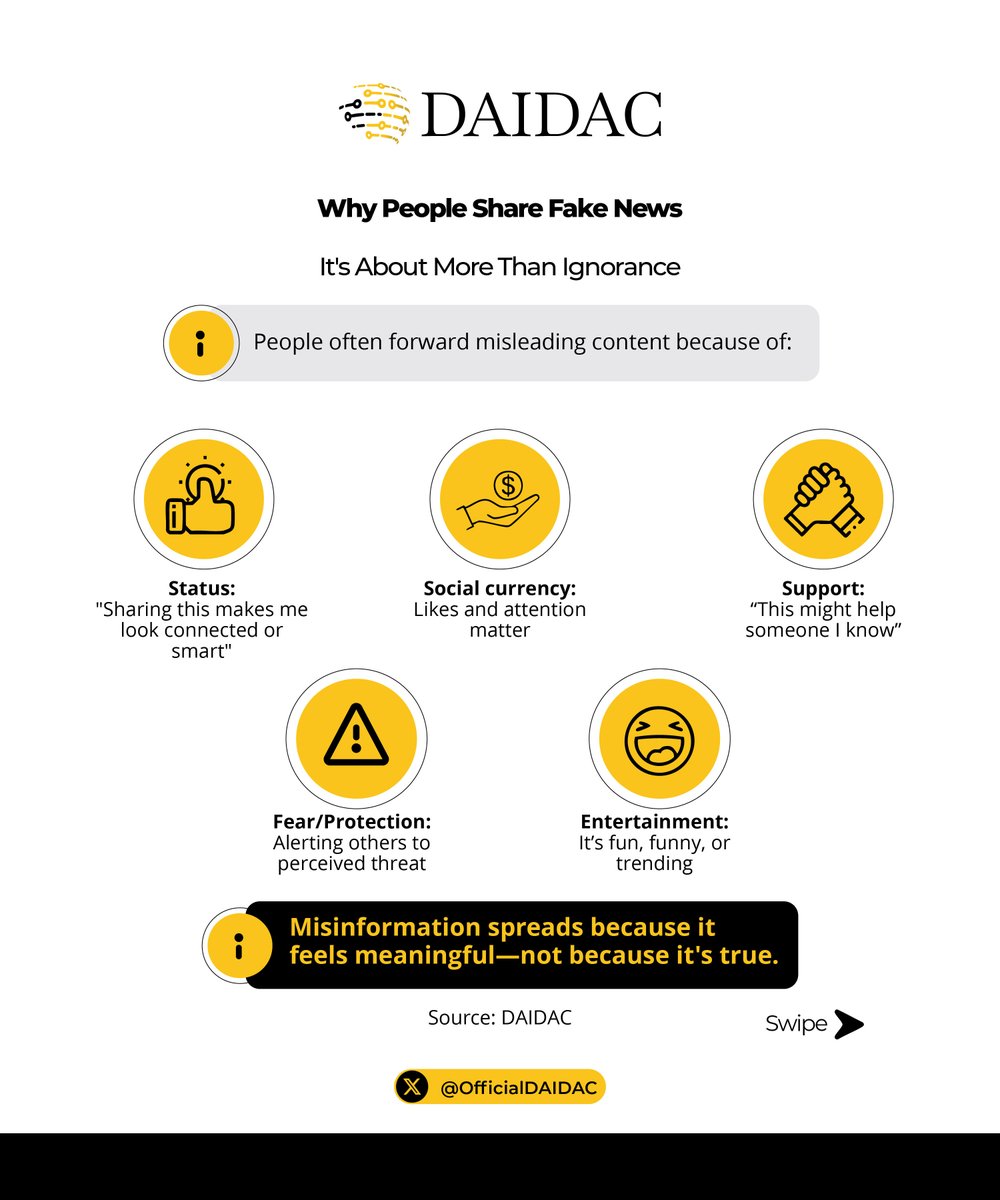

The future of platform governance is at a crossroads, with Big Tech facing unprecedented legal pressure worldwide. These are not just regulatory issues, they represent a global contest over the governance of digital platforms. See insights here: bit.ly/4k8Ixlv



Months after Meta ended third-party fact-checking, Instagram scams have surged, leaving users more vulnerable to account takeovers and phishing attacks. Flip the cards and see key insights here: ➡️ daidac.thecjid.org/months-after-m… #CyberSecurity #OnlineSafety #Disinformation


